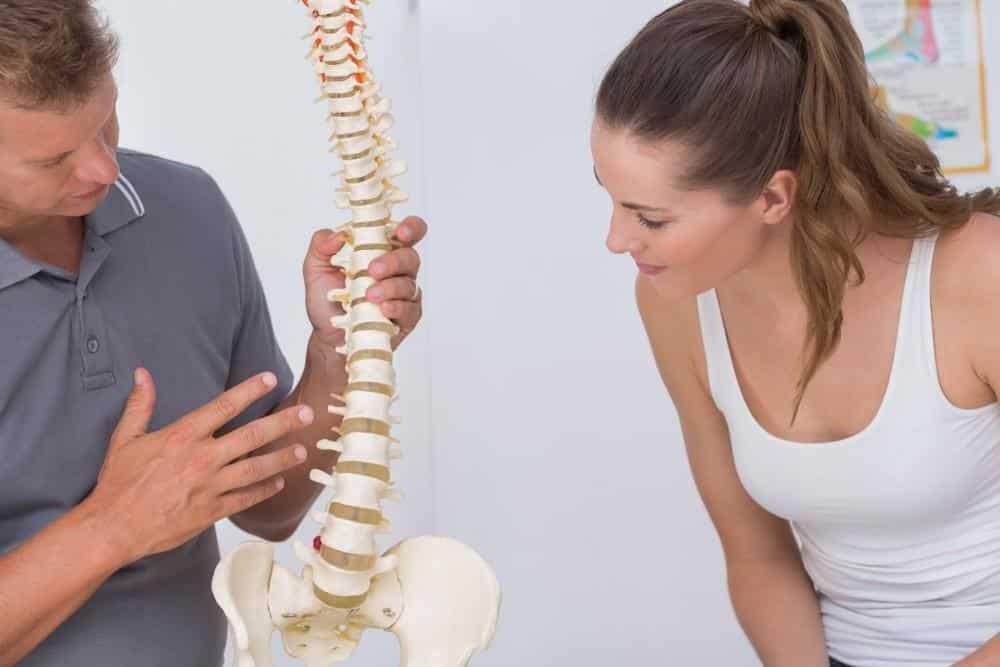A tough but spongy disc sits underneath each one of your vertebrae, protecting the bones from rubbing together and providing shock absorption and cushioning to the spine. Although the outer layer of the intervertebral disc is tough, it can tear, causing the soft inner part of the disc to push out.
A disc herniation happens when the inner nucleus of the disc pushes through the tough outer layer, causing pain and nerve compression. The pain may be moderate to severe, causing significant disability in some cases.
The treatment for a herniated disc depends on the severity of the injury and your symptoms. Severe disc herniations may require surgery, but what type do you need for pain relief?
Dr. Jordi Kellogg and the team at Kellogg Brain and Spine offer various treatments for spinal conditions like herniated discs. Dr. Kellogg carefully evaluates your symptoms to determine if you need a decompression discectomy or a disc replacement for long-term relief of pain.
What is a decompression discectomy?
A decompression discectomy is a surgical procedure Dr. Kellogg performs to remove part of a herniated disc that’s pressing on a nerve and causing symptoms. Depending on your specific needs and health, it can be an open or minimally invasive procedure.
During a decompression discectomy, Dr. Kellogg either makes an incision on your spine or uses a small catheter to enter the space between the vertebrae where the damaged disc lies. He then uses regular or small, specialized tools to remove the damaged areas of the disc that are pressing on the nerves.
A decompression discectomy takes the excess strain off the spinal nerves from the herniated disc that’s causing symptoms. It’s also a good choice for people living with severe sciatica, spinal stenosis, and chronic back pain with nerve symptoms.
The benefits of a decompression discectomy are numerous, including the fact that we can perform it minimally invasively. It also provides significant relief from pain for many patients suffering from a herniated disc.
Understanding a disc replacement
A disc replacement is different from a decompression discectomy. Instead of removing a piece of the disc, Dr. Kellogg removes the entire herniated disc, causing symptoms such as numbness or tingling down your arms or legs.
After removing the entire herniated disc, Dr. Kellogg inserts an artificial disc into the intervertebral space. The artificial disc provides the same movement and height as your natural disc while relieving pain and other symptoms.
You may be a candidate for an artificial disc replacement if you have neck or back pain caused by arthritic or herniated discs and are free from osteoporosis or scoliosis.
The primary benefit of an artificial disc over other spine procedures is that it preserves the natural movement of the spine while still relieving chronic pain. A spinal fusion after a discectomy does relieve pain but causes restricted motion in the spine.
Which one is right for you?
Both a decompression discectomy and a disc replacement are viable options if you’re living with chronic pain from a herniated disc – but which one is better for you? The answer isn’t always simple, so Dr. Kellogg explains each option and both pros and cons.
Though both procedures offer long-term relief from nerve-related back and neck pain, only a disc replacement provides the benefit of preserving function and movement in the spine after surgery.
You could be a candidate for a disc replacement if you have one or two arthritic or damaged discs that are causing symptoms that don’t get better with conservative treatments.
It’s also a good option for younger patients who haven’t had any other spine surgery and don’t have significant bony compression of nerves.
If you’re only having symptoms from one herniated disc and don’t have any other spine issues, a minimally invasive decompression discectomy might be a better option. It’s a less invasive surgery and allows you to recover quicker.
The type of surgery you need also depends on your overall health, the leading cause of back pain, and your need for normal spinal movement. Dr. Kellogg carefully evaluates your symptoms and imaging studies to determine which option benefits you the most.
Call Kellogg Brain and Spine today to schedule a consultation with Dr. Kellogg for information on herniated disc treatments, or request an appointment on the website.


